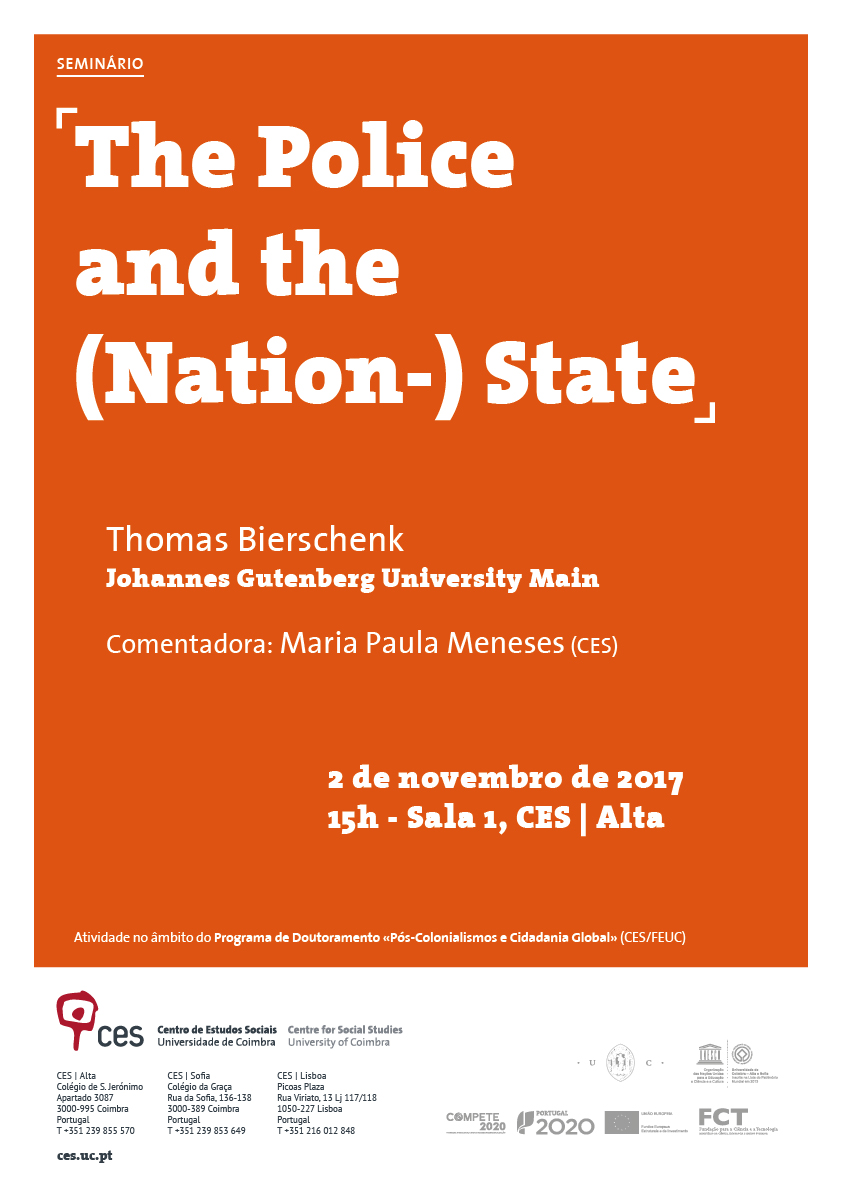Seminário
The Police and the (Nation-) State
Thomas Bierschenk (Johannes Gutenberg University Main)
2 de novembro de 2017, 15h00
Sala 1, CES | Alta
Commentator: Maria Paula Meneses (CES)
Abstract
From the standpoint of legal theory, the modern state and the police constitute each other: the police is the instrument by which the state internally realizes its monopoly of violence and thus its sovereignty. From a sociological point of view, however, the state, its law and its bureaucratic regulations are only one moral order towards which policemen orient their actions. For policemen, like all bureaucrats, have to face a fundamental paradox: It is their role as bureaucrats which brings them into contact with the life-worlds of citizens, but a purely bureaucratic logic does not suffice to process these problems.
Therefore, the law is mobilized selectively, depending on the interaction partners and situative appreciations. In addition, or alternatively, policemen also orient their actions towards other moral orders, pragmatic considerations, and even esthetic concerns. Furthermore, the police always competes, and cooperates, with other policing institutions; in fact, most policing is not done not by the police but by private actors. A comparative historical sociology of police allows to identify the particular cultural repertoires and practical norms to which policemen, in a given place and time, refer. However, the reference to law, and to the legitimate use of violence, always remains the last resort; even when referring to other moral convictions and pragmatic considerations, policing, by the police, is always done in the shadow of the state.
Biographical note
Thomas Bierschenk is Professor of Anthropology and Modern African Studies at Gutenberg University Mainz, Germany. In his research, he has focused on African public services and civil servants, the ethnography of public policies as well as of the local state in West Africa. He has published, together with Jean-Pierre Olivier de Sardan, States at Works. Dynamics of African Bureaucracies (Brill 2014). He has contributed to the Handbook of Global Policing (Sage 2016), as well as authored the chapter on Who are the police in Africa? (in Police in Africa. The Street Level View, ed. By J. Beek, M. Göpfert, O. Owen & J. Steinberg, Hurst, London 2017. He is currently preparing an interdisciplinary (anthropology, linguistics) research project on The construction of cultural differences in the encounter between German policemen and non-German- speaking clients.
Activity within the Doctoral Programme Postcolonialisms and Global Citizenship


